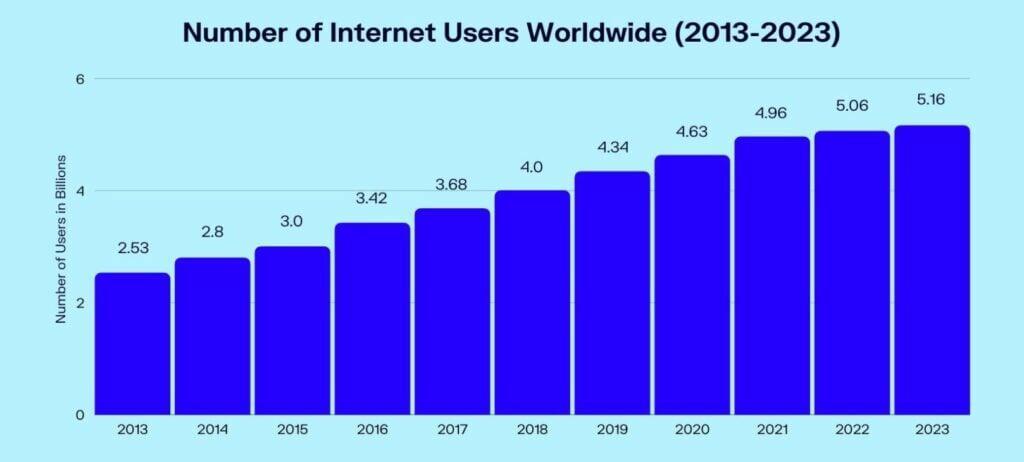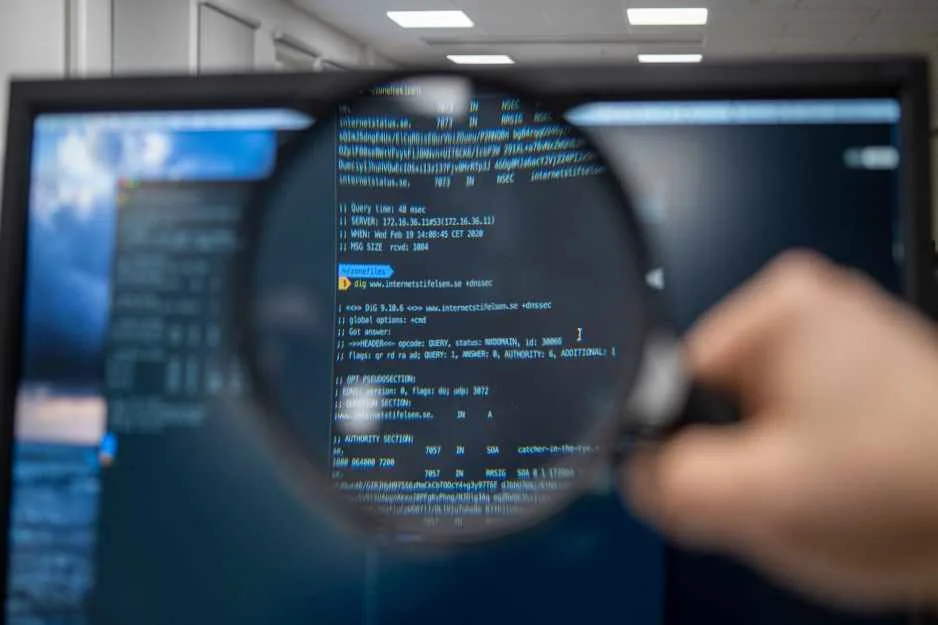The Internet, considered to be born on January 1, 1983 is changing our society. While we once relied on local communities to stay in touch with one another, that is no longer the case.
Today, the Internet connects people from all over the world and allows for a global conversation. It has altered society in many ways, from cultural exchange to social and economic development. It has rewritten many rules of engagement, and the Internet has enabled many new ways of thinking and connecting.
It has enabled us to access an almost infinite source of information, from news sites to local news sources. Now, we can access any news source from anywhere.
The speed of access varies by location, cost, and bandwidth availability. However, internet use has improved the quality of life for everyone. Those who want to read the news can choose the sources they want to use and what information they want to receive.
The Internet is helping young people voice their opinions and express their political freedoms. This is encouraging, as it shows the positive impact of the Internet on political freedom. Increasing access to faster, cheaper internet connections may help to bring down powerful leaders
It’s been postulated that about 95% of all information available has been digitised and made accessible via the Internet. This processing system has also led to a complete transformation in communication, availability of knowledge as well as social interaction.
However, as with all major technological changes, there are positive and negative effects of the internet on the society too.
The Internet’s positive effects include the following:
- The Intenret provides effective communication using emailing and instant messaging services, no matter where you are.
- It saves time, which improves business relationships and transactions.
- Shopping and banking online has made everyday life less complex.
- You can get global news without relying on television or newspapers.
- The availability of millions of books and journals online has provided a huge boost to education. Students can now take online courses using the internet. Research has become easier as a result.
- Modern job applications have become simpler, as most jobs are posted online and applications are now the norm.
- Professionals can now enhance their research by exchanging information and materials online.
The Negative Impacts of the Internet on Society include:
- Availability of illegal or inappropriate materials online that isn’t age-suitable is easy to access
- Long periods of screen time can negatively affect our health and communication skills by causing insomnia, eye strain, and anxiety and depression.
- A person’s personal and professional life can be disrupted by an addiction to social networking.
- Some criminals use the Internet to hack into people’s accounts for nefarious purposes, such as stealing data or financial information.
What percent of the world has access to the Internet?
Summary: 5 Internet Statistics
- 65.6 percent of the entire world’s population has internet access. There are 4.28 billion unique mobile internet users worldwide, which makes up 54.6 percent of the global population.
- Today, there are over 1.8 billion websites on the world wide web and counting (Internet Live Stats, 2022).
- The very first website was launched in August 1991, by none other than Tim Berners-Lee, the creator of the worldwide web himself.
- Since the internet was made publicly available in 1991 – 30 years ago now. Nine years later at the turn of the millennium, 361 million people around the world had access to the internet.
- Nearly one quarter (24.4 percent) of the world’s internet users are located in East Asia

Digital Divides
While the Internet is benefiting the world economically, its impact is not equally distributed. Digital divides are increasing and could spread across nations.
This will negatively impact jobs, as well as the economic performance of countries. As a result, the impact of the Internet on modern society can’t be ignored.
In the future, we must learn to adapt to this rapid change in our society.
As the Internet grows, so too does its impact on society. Consumers are now in control of marketing and distribution. They review products and influence retail trade and the economy.
Here are some key ways in which the internet has changed our society:
- Communication:
- Global Connectivity: The internet has connected people worldwide, breaking down geographical barriers. Communication has become instantaneous, allowing for real-time interaction with individuals and communities across the globe.
- Social Media: Platforms like Facebook, Twitter, Instagram, and others have emerged, enabling people to share their lives, thoughts, and opinions with a wide audience. This has altered the way we form and maintain relationships.
- Global Connectivity: The internet has connected people worldwide, breaking down geographical barriers. Communication has become instantaneous, allowing for real-time interaction with individuals and communities across the globe.
- Information Access:
- Information Overload: The internet provides access to an immense amount of information on virtually any topic. This has led to both a democratisation of knowledge and the challenge of navigating through vast amounts of data.
- Education: Online learning has become more prevalent, offering flexible and accessible educational opportunities. It has also facilitated lifelong learning and skill development.
- Information Overload: The internet provides access to an immense amount of information on virtually any topic. This has led to both a democratisation of knowledge and the challenge of navigating through vast amounts of data.
- Commerce:
- E-Commerce: Online shopping has become a significant part of the economy. Consumers can purchase goods and services from the comfort of their homes, leading to changes in retail and business models.
- Digital Payments: The internet has facilitated the transition from traditional cash transactions to digital payments, making financial transactions more efficient.
- E-Commerce: Online shopping has become a significant part of the economy. Consumers can purchase goods and services from the comfort of their homes, leading to changes in retail and business models.
- Work and Business:
- Remote Work: The internet has enabled remote work, allowing individuals to work from any location with an internet connection. This has implications for work-life balance, job flexibility, and the nature of office spaces.
- Startups and Entrepreneurship: The internet has lowered barriers to entry for entrepreneurs, allowing for the creation of online businesses and startups with global reach.
- Remote Work: The internet has enabled remote work, allowing individuals to work from any location with an internet connection. This has implications for work-life balance, job flexibility, and the nature of office spaces.
- Entertainment:
- Streaming Services: The rise of platforms like Netflix, Hulu, and others has changed the way we consume entertainment, providing on-demand access to a vast array of content.
- Gaming: Online gaming has become a significant industry, connecting players worldwide and creating virtual communities.
- Streaming Services: The rise of platforms like Netflix, Hulu, and others has changed the way we consume entertainment, providing on-demand access to a vast array of content.
- Political and Social Activism:
- Online Activism: Social media and online platforms have played a role in political movements and social activism, providing a platform for individuals to voice their opinions and mobilize for social change.
- Online Activism: Social media and online platforms have played a role in political movements and social activism, providing a platform for individuals to voice their opinions and mobilize for social change.
- Privacy and Security:
- Privacy Concerns: The internet has raised concerns about the privacy of personal information, as individuals share a significant amount of data online. This has led to debates and discussions about digital privacy and data protection.
- Cybersecurity: The interconnected nature of the internet has brought about new challenges in terms of cybersecurity, with increased risks of hacking, identity theft, and other cybercrimes.
- Privacy Concerns: The internet has raised concerns about the privacy of personal information, as individuals share a significant amount of data online. This has led to debates and discussions about digital privacy and data protection.
- Cultural Impact:
- Cultural Exchange: The internet has facilitated cultural exchange on a global scale, allowing people from different cultures to share and appreciate diverse perspectives.
- Online Communities: The formation of online communities around shared interests has created new avenues for social interaction and cultural expression.
- Cultural Exchange: The internet has facilitated cultural exchange on a global scale, allowing people from different cultures to share and appreciate diverse perspectives.
How The Internet Affects Adult’s Vs Children
The impact of the internet differs significantly between adults and children due to variations in experience, developmental stages, and usage patterns. Here’s a comparison of how the internet affects each group:
Adults:
- Communication and Networking: For adults, the internet often serves as a vital tool for communication and networking, both personally and professionally. Platforms like email, social media, and professional networking sites facilitate staying in touch with friends, family, colleagues, and industry peers.
- Information Access: Adults frequently rely on the internet for accessing information on a wide range of topics, from news and current events to research and education. Search engines, online databases, and digital libraries provide convenient access to vast amounts of information, enabling adults to stay informed, learn new skills, and pursue personal interests
. - Work and Productivity: Many adults use the internet extensively for work-related tasks, including communication, research, project management, and remote collaboration. Cloud-based productivity tools, video conferencing platforms, and project management software facilitate remote work and enable greater flexibility in scheduling and location.
- Entertainment and Leisure: Adults also use the internet for entertainment and leisure activities, such as streaming movies and TV shows, listening to music, playing online games, and browsing social media.
Children:
- Education and Learning: For children, the internet can be a valuable educational resource, offering access to educational websites, interactive learning platforms, and online courses. Educational apps and games can supplement traditional learning methods, providing opportunities for skill development and academic enrichment.
- Socialisation and Peer Interaction: Children often use the internet to socialize and connect with peers, particularly through social media, messaging apps, and online gaming communities. These platforms allow children to maintain friendships, share experiences, and engage in collaborative activities with others their age.
- Entertainment and Recreation: Similar to adults, children use the internet for entertainment and recreation, enjoying online videos, games, music, and other multimedia content. However, children may be more susceptible to spending excessive amounts of time on screen-based activities, which can have implications for their physical health, sleep patterns, and overall well-being.
- Safety and Digital Literacy: Children are particularly vulnerable to online risks such as exposure to inappropriate content, cyberbullying, online predators, and privacy breaches. Therefore, it’s crucial for parents and caregivers to educate children about internet safety, responsible online behavior, and critical thinking skills to navigate the digital world safely and confidently.
While the internet offers numerous benefits for both adults and children, its impact varies depending on factors such as age, developmental stage, and usage context.
Adults often use the internet for communication, information access, work, and entertainment, while children may focus more on education, socialisation, entertainment, and developing digital literacy skills under appropriate guidance and supervision.
Internet Usage Statistics (As of 2024)
Worldwide, there are approximately 5.35 billion internet users, constituting around 66% of the global population, according to Statista. Activities such as work, streaming, scrolling, and gaming are among the common reasons for accessing the internet.
- The number of internet users is projected to escalate to 7.9 billion by 2029. As the internet evolves to accommodate the demands of modern life, this growth is expected to surge rapidly. By 2024, the user base is forecasted to expand by 47% from 5.35 billion to 7.9 billion users.
- On average, individuals spend approximately six and a half hours online daily. This duration varies across age groups, with those aged 16 to 24 spending an additional 2.5 hours online compared to those aged 55 to 64, as reported by the Global Web Index.
- Globally, 75% of individuals aged 15 to 24 have internet access, surpassing the 65% access rate for those aged 25 and older by a notable margin of 10%, according to Statista.
- Each day, an impressive 7.5 million blog posts are published online, covering a vast array of topics ranging from recipes and fashion to finance and home decor, as per EarthWeb.
- As of 2024, there are approximately 5.04 billion social media users worldwide, utilizing platforms like Facebook, Instagram, Reddit, and TikTok to connect and share experiences online.
The Internets Impact – Summary
The internet has undeniably revolutionised modern society in various aspects, from communication and information access to commerce and entertainment.
Its pervasive influence has reshaped how we live, work, and interact with one another on a global scale. While the internet has brought about numerous benefits and opportunities, it has also presented challenges such as privacy concerns, digital divide, and cybersecurity threats.
As we continue to navigate the digital age, it’s imperative to strike a balance between harnessing the internet’s potential for good while addressing its drawbacks.
Only through thoughtful regulation, education, and technological innovation can we maximize the positive impact of the internet on modern society while mitigating its negative effects.
.







